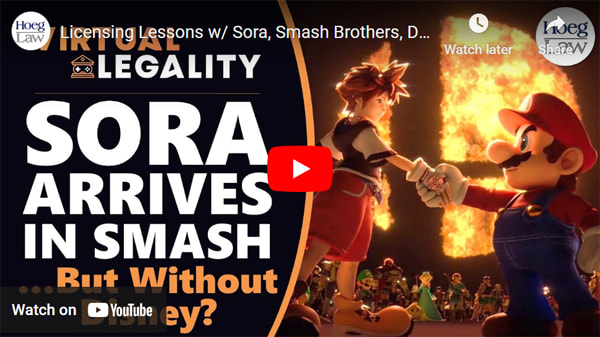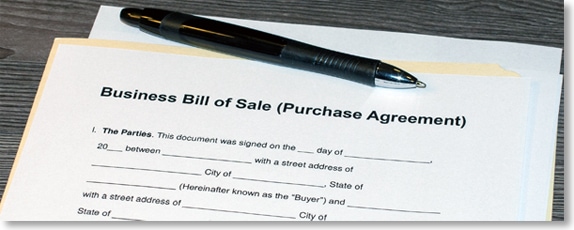Video Game Lawyers
There are a number of laws on the books currently applicable to the video game industry and game development. Unfortunately, many of these are simply out of date with current technology and industry practice. This makes legal compliance challenging for video game companies, especially smaller ones who do not have their own legal departments. Because of this, it is critical that those involved in video game development work with an attorney specializing in video game law.
Hoeg Law is uniquely qualified to handle video game law matters, with years of experience not only in working with small businesses and video game developers but also from a personal perspective. As an avid gamer himself, attorney Richard Hoeg has in-depth knowledge of the industry with a personal interest in seeing continued successful game development and progress. If you are in need of legal assistance regarding video game development or other small business related legal matters, please contact our office today to get started.
Virtual Legality

Hoeg Law has a YouTube Channel called “Virtual Legality.” On Virtual Legality we discuss legal and business issues related to video games, software, music, movies, television, and all sorts of popular culture, including deep dives into legal documents, statutes, & intellectual property.
IP Protection and Copyright
One of the most critical legal issues for video game developers is the protection of intellectual property. IP protection is vital for the long term success of any developer, however this is a much more complicated matter for video games than other products. Unlike most situations involving IP protection, no single method of legal protection is effective, instead requiring a combination of methods to ensure the best possible protection of the hard work put into developing and designing video games.
Because video games are considered to be creative works, any artwork, code, music or sound effects contained within a game are protected under U.S. copyright law. This means that any work created by employees during the course of their daily duties are automatically protected under copyright law, giving that company the exclusive right to sell, distribute, modify, reproduce and display this work. Unlike standard copyrights, this copyright does not need to be registered with the U.S. Copyright Office. However, formally registering allows companies to see compensation and redress for any infringement on their work.
It should be noted that copyright law does not offer full protection for video games. Copyrights only protect the specific expression of an idea, not the idea itself. This means that individuals can borrow the underlying theme or idea behind a game and make their own version with differing artwork, music, characters, code, etc. Because of this, the mechanics, functionalities and rules behind video games are not eligible for copyright protection, only the expressive elements. It is for this reason that consulting with an expert video game lawyer is critical to ensure that the IP of a video game company is protected, especially when possible trademark infringement is involved, as well as suits against substantially similar work by competitors.
Trademarks
One of the primary means for protecting any brand is trademarking, which entails registering any distinctive marks representing a company with the U.S. Patent and Trademark office. This serves an particularly important role for video game developers as any avatars, images or other game elements can possibly be trademarked, adding an additional layer of IP protection against infringement by competitors. Including trademark protection is key for an overall IP strategy for video game developers to ensure they are covered from all angles.
Open Source
Open source code can be advantageous for video game developers. However, while this is legally allowed, it is important to check what if any responsibilities or restrictions may be tied to the use of this code. Oftentimes open source code licensing includes copyleft provisions which require any derivative works to use the same licensing as the original work, which means that developers using open source code consider any potential legal implications before it is included in their final product or before the work is licensed as their own.
Independent Contractor Agreements

Much of the video game development industry makes use of freelance coders and artists to develop graphics, images and other specific elements of the games that are being produced. Due to the fact that the independent contractor relationship isn’t covered by the typical work-for-hire doctrine, the work of freelance contractors isn’t automatically considered the IP of the company that is funding their work. Instead, under U.S. copyright law, the freelancer legally holds the copyright until it has been transferred.
Unless this was clearly laid out in the independent contractor agreement, gaming companies may find themselves forced to license work that was already developed, or be precluded from using this work entirely. In some cases, this work can even be lost to a competitor who is willing to pay a higher licensing fee. This highlights the importance of properly setting up independent contractor and non-disclosure agreements in order to ensure the ownership of the work is properly addressed, as well as any other legal matters specific to the video game industry.
Hiring a Video Game Attorney
The video game development industry has a number of unique legal complexities and challenges that must be addressed by game developers and companies in order to ensure their hard work is protected from infringement and unnecessary legal liabilities. While many larger gaming companies have in-house legal counsel to assist in these matters, most medium to small companies and developers do not have this luxury.
Working with an attorney specializing in video game law is vital in order for companies to ensure the best possible future for themselves and their projects. Hoeg Law has years of experience working with the video game industry, as well as virtually all aspects of small business and contract law. If you are in need of legal representation or assistance for your video game development company or business venture, please contact our office today to find out how we can help.
